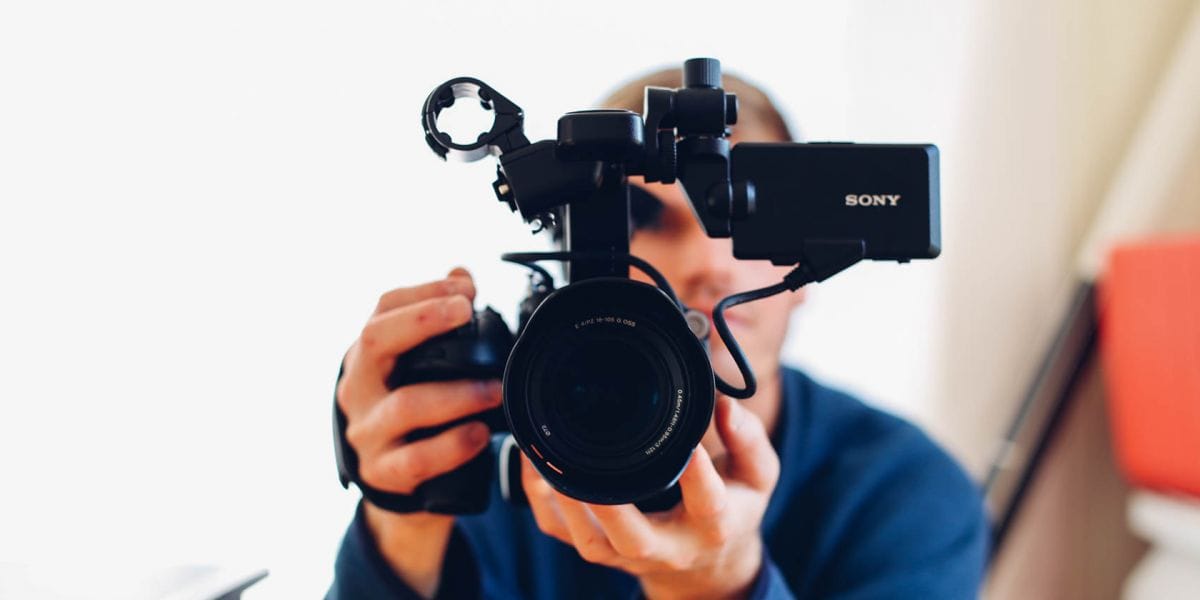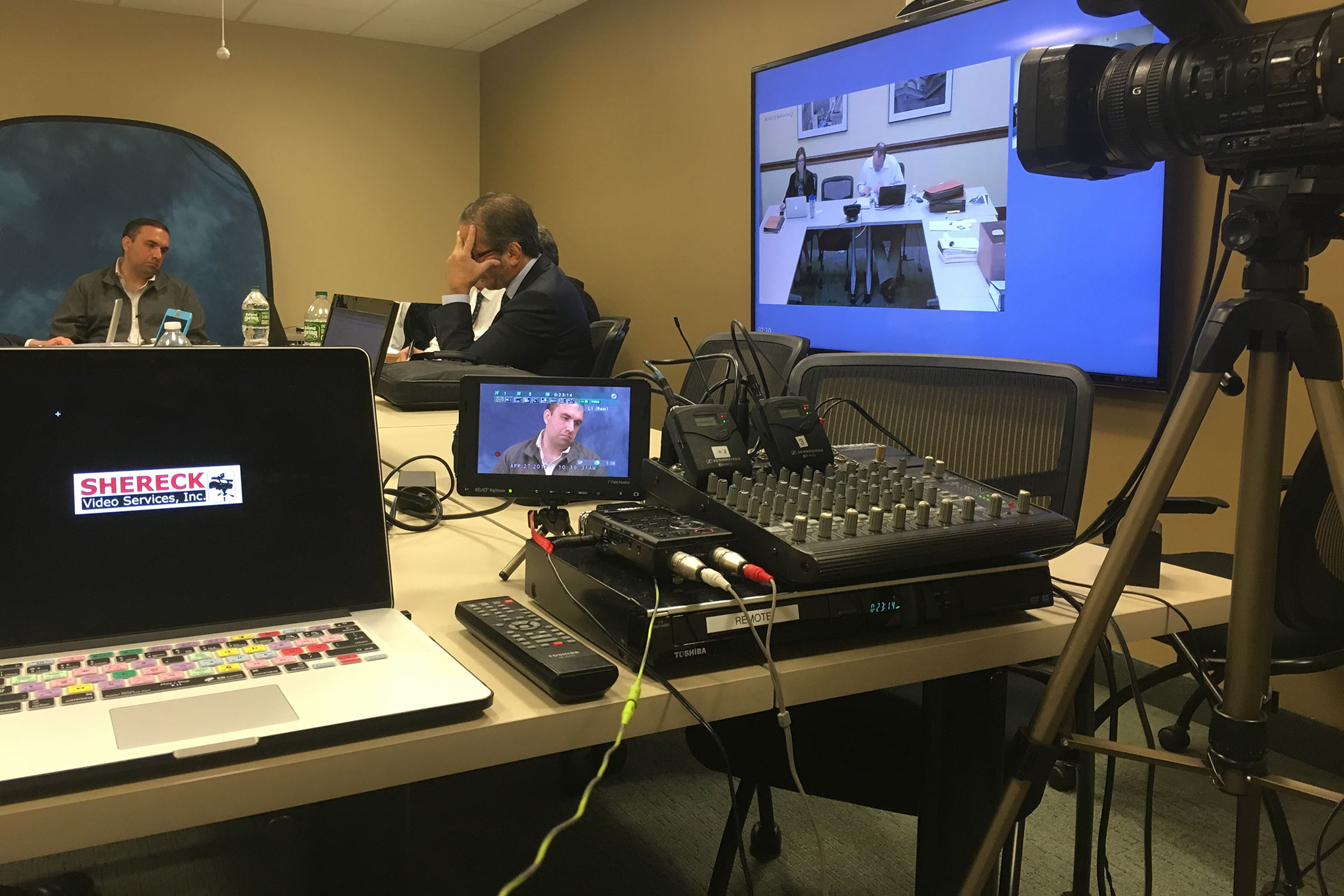The Function of Lawful Videography in Depositions and Tests
Legal videography has arised as an important device in both depositions and trials, providing a complex strategy to documenting witness testaments. As legal specialists significantly recognize its value, it prompts a much deeper exam of exactly how these visual records can affect juror perceptions and test results.
Importance of Lawful Videography
Legal videography plays a critical function in the paperwork and presentation of depositions and trials. This customized area combines technical skills with legal expertise to create a trustworthy document of procedures that can considerably affect situation results. The appearance of legal videography improves the understanding of witness testament, enabling jurors and judges to observe not only the talked words however additionally the temperament, emotions, and body language of the witnesses.

The importance of lawful videography prolongs beyond the court; it additionally plays an important function in maintaining proof for future reference, whether for appeals or additional lawful activity. Its assimilation right into the legal process is vital for making sure a reasonable and exact depiction of the realities, inevitably adding to the search of justice.

Process of Legal Videography
While recording the subtleties of depositions and trials, the process of legal videography involves numerous essential actions that make certain high-grade, exact recordings. At first, a specialist lawful videographer prepares by reviewing the instance materials and recognizing the details needs of the deposition or test. This prep work includes acquainting themselves with the participants and the context, which helps in catching relevant details.
On the day of the recording, the videographer establishes up the necessary tools, which normally includes high-definition electronic cameras, microphones, and appropriate lighting. Making sure ideal angles and audio high quality is crucial, as it directly influences the effectiveness of the recording. The videographer interacts with attorneys and participants to develop methods, making certain that every person comprehends the recording process.
During the deposition or test, the videographer diligently videotapes the proceedings, paying very close attention to both verbal and non-verbal signs. legal videography. This includes recording the attitude and responses of witnesses and lawyers. After the session concludes, the videographer may edit the footage for quality and conformity with legal standards, generating a last product that properly shows the process for future recommendation and usage in legal contexts
Advantages in Depositions
The incorporation of videography in depositions supplies numerous benefits that enhance the total procedure of gathering proof. go to my site One primary benefit is the capacity to capture witness statements with aesthetic and auditory integrity, providing a much more precise representation of the witness's behavior, tone, and body language. This multidimensional method permits attorneys and juries to examine reliability a lot more effectively than conventional written records alone.
In addition, videographed depositions function as a powerful tool for maintaining statement. Must a witness ended up being unavailable for trial, their taped deposition can be played in court, making certain that their evidence remains easily accessible and pertinent. This facet significantly decreases the danger of shedding crucial information that might impact instance end results.
Moreover, making use of legal videography promotes much better preparation for lawyers. Examining video clip footage permits lawful groups to assess and improve their approaches, determining strengths and weak points in their instances. This primary advantage can lead to even more compelling discussions in court.
Finally, videography improves the general expertise of the deposition procedure, instilling self-confidence in clients relating to the thoroughness of their legal depiction. By leveraging modern technology, legal specialists can substantially enhance the performance of depositions.
Effect On Tests
In lots of trials, the assimilation of videography can substantially affect the presentation of proof and the court's perception. Legal videography records witness testimonies and essential evidence in a vibrant style, enabling jurors to engage with the product on multiple degrees. This visual element enhances the storytelling facet of a test, supplying context and emotional resonance that standard text-based proof might lack.
In addition, video clip recordings can serve as effective devices for impeachment during cross-examination. When inconsistencies develop in between a witness's previous statements and their courtroom statement, video evidence supplies an objective referral that can persuade jurors' viewpoints. This immediacy and quality can boost the trustworthiness of a party's narrative while concurrently undermining opposing debates.
Additionally, the usage of videography can help enhance complex details, making it more obtainable to jurors who might struggle to realize elaborate information presented only through spoken statement. By integrating visuals with acoustic information, legal videography can improve retention and understanding, ultimately influencing the court's decision-making process. As a result, the impact of videography in trials prolongs past plain visual appeals; it plays a critical role in shaping the lawful landscape and end results.
Future Trends in Legal Videography
As we look toward the future of legal videography, numerous arising trends promise to improve its duty within the court see this website room. One substantial trend is the integration of expert system (AI) in video analysis and modifying - legal videography. AI can simplify the procedure of identifying crucial minutes in videotaped depositions, allowing attorneys to swiftly access appropriate web content, therefore boosting performance in case prep work
Additionally, the surge of online fact (VR) and boosted truth (AR) additional info technologies is expected to change just how jurors experience proof. By submersing jurors in a substitute atmosphere, these innovations can supply a more extensive understanding of complex circumstances, resulting in more educated considerations.

In addition, the boosting need for remote depositions, sped up by the COVID-19 pandemic, will likely continue. Legal videographers will certainly require to adapt to brand-new software application and platforms to ensure top quality recordings in online setups.
Finally, the growing focus on data safety and security will certainly demand stricter protocols for saving and sharing video proof. As the lawful landscape advances, legal videographers have to stay abreast of these trends to preserve their relevance and efficiency in the judicial process.

Conclusion
In recap, legal videography offers a critical feature in the judicial procedure, improving the honesty of depositions and tests. As technology proceeds to evolve, lawful videography is positioned to additional change its function within the legal landscape.